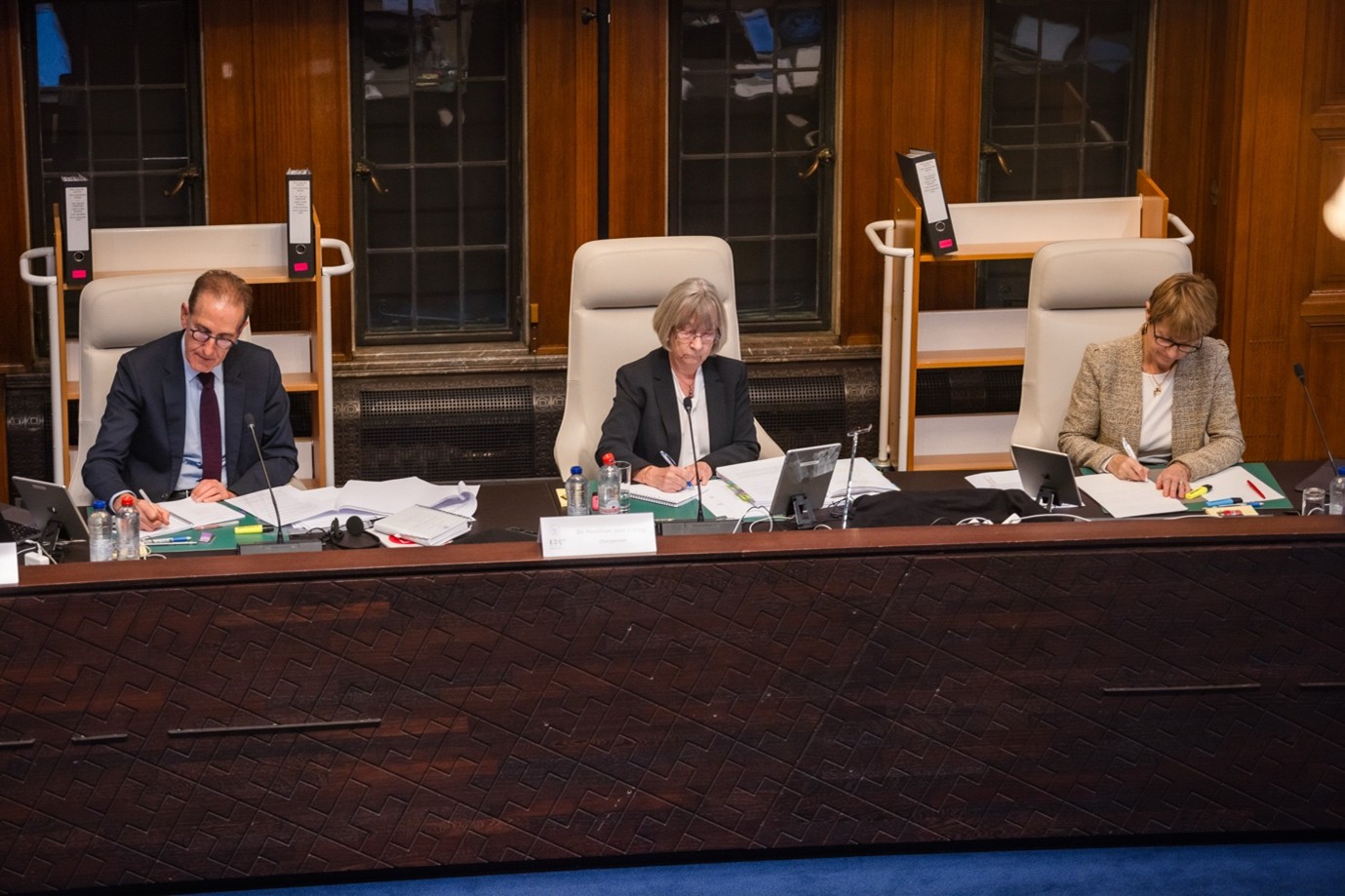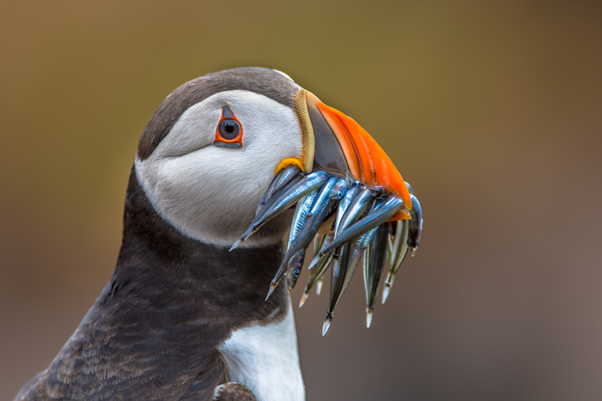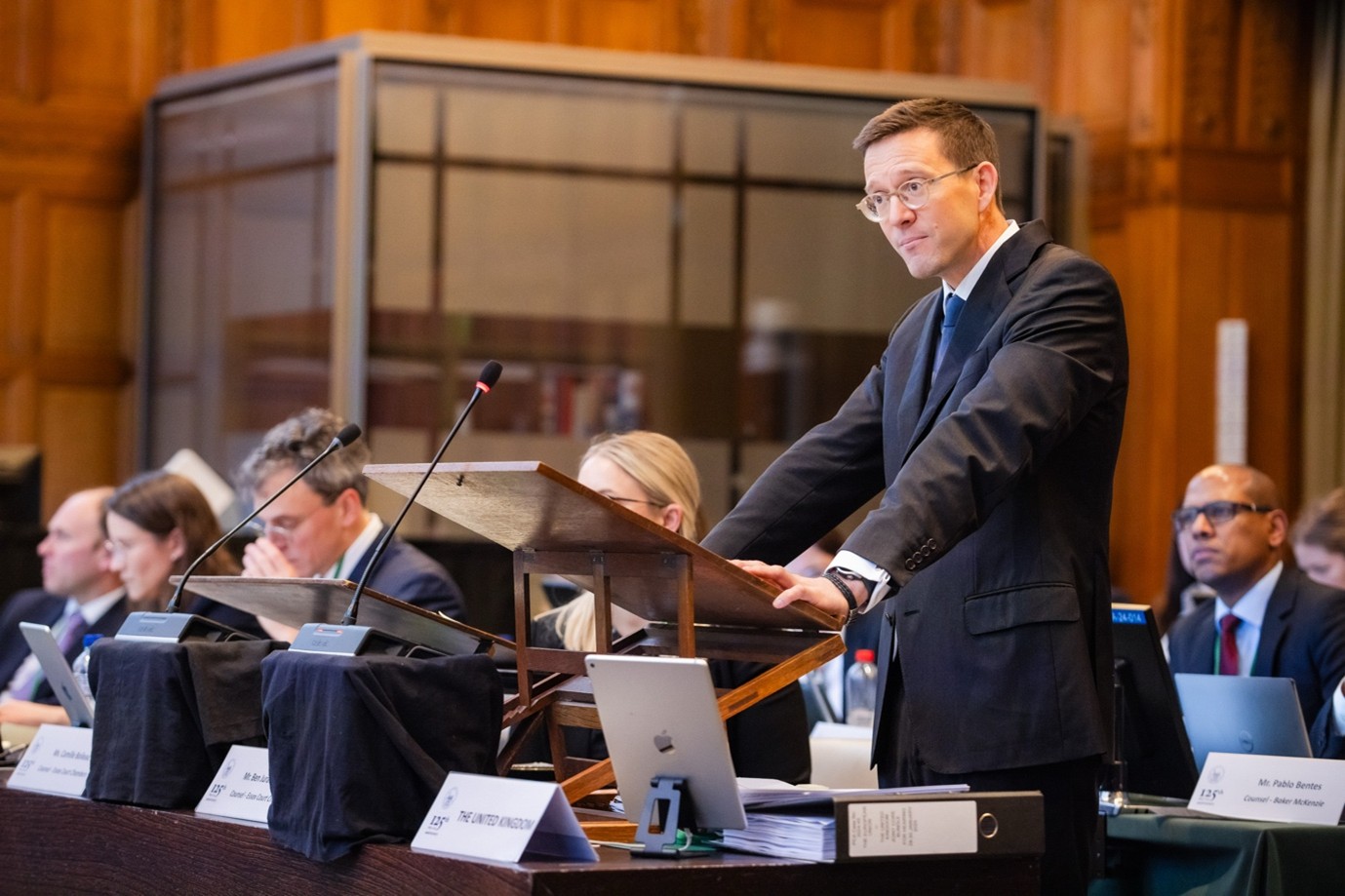The dispute over sandeel fishing in the North Sea marks the first time the UK and EU have been to court since Brexit in 2020. The outcome of the case could be hugely significant for seabird populations along the east coast and for UK-EU trade relations.
A tribunal under the post-Brexit Trade and Cooperation Agreement (TCA) met at the Permanent Court of Arbitration in The Hague from 28 to 30 January 2025. Recently submitted papers since the hearing reveal a disagreement between the parties on what constitutes ‘best available scientific evidence’, a key point which could influence the decision of the Court.
Arbitration tribunal in session
Ban on sandeel fishing
Back in early 2024 the UK and Scottish Governments introduced a ban on sandeel fishing in Scottish waters and English waters of the North Sea in a move conservationists hailed as critical for saving the UK’s globally important seabird colonies.
Sandeels form the base of the North Sea food chain and are eaten by seabirds, harbour porpoises, cod and haddock. They are not caught for human consumption but are made into fishmeal and oil, for animal feed.
The EU supported Denmark – the country with by far the biggest sandeel fishing fleet – and challenged the ban.
Scientific advice behind the ban
The dispute centres on whether the UK’s right to restrict trawlers for conservation reasons unnecessarily restricts agreed EU fishing rights.
In its submissions to the court, the EU has argued the geographical scope of the ban is not justified by the scientific modelling on stock levels, or the “economic and social impacts” on Danish fishing communities.
In a response published by the court, the UK has defended the scientific advice behind the ban, adding that the EU has failed to point out “any superior model” available at the time. In a post-hearing submission the EU contends that Article 496(2) TCA obliges Parties to base fisheries management measures on the “best available scientific advice”, but this obligation applies to the Party deciding on a measure rather than to the Party challenging that measure – in other words, the UK rather than the EU.
It added that the UK was within its rights to bring in the ban, highlighting that the trade agreement itself commits both sides to taking account of the impact of fishing on marine diversity.
“Best available scientific advice”.
During the hearing itself, the UK challenged the EU’s interpretation of the term “best available scientific advice”.
Following the hearing, the EU submitted further supplementary written submissions and stated that it had followed the interpretative principles under customary international law as codified in the Vienna Convention on the Law of Treaties. It advanced an interpretation of the term “best available scientific advice” in the light of that exercise.
The EU’s submission went on to say that ‘in contrast, the UK’s approach is essentially to express disagreement with the interpretation proposed by the EU, without offering any alternative elements to assist the Tribunal to interpret the term “best available scientific advice”’.
‘The EU considers this to be problematic. First, it does not assist the Tribunal in the process of identifying how this term should be understood. Second, it reflects more generally that the UK seeks to have a broad and uncharacterised definition of a term which is one of the core constraints on the exercise of regulatory autonomy when deciding on fisheries management measures under Heading Five of Part Two TCA. Given the role of this requirement in the overall structure of the provisions at the core of this dispute, the EU insists that some precision is required’, the EU submission continues.
Mr. Ben Juratowitch KC – Counsel for the United Kingdom
The term ‘available’
One point on which there is a clear disagreement between the Parties concerns the meaning to be attributed to the term “available” and the extent to which it imposes a burden on a Party to obtain other scientific evidence or information that would, if used, lead to a higher quality of “scientific advice”. The UK does not concur with the EU’s position that within the notion of “available” is evidence that is “reasonably obtainable”.
The EU asserts that the UK’s position is that scientific advice on which a measure is based can be dissociated from existing scientific evidence. Therefore, the EU believes that this interpretation significantly weakens the relevance of science-based decision-making and for that reason, this narrow interpretation should be rejected. The EU believes that Parties must make reasonable efforts to obtain the best available scientific advice in light of existing scientific evidence.
Outraged Danish fishers
The ban outraged Danish fishermen, who under the post-Brexit trade deal hold the right to fish the overwhelming majority of the EU’s share of the species in UK waters.
Jens Schneider Rasmussen, Chairman of Denmark’s Pelagic Producer Organisation said “The UK’s closure of the sandeel fishery has been decided in a process devoid of independent scientific advice and proportionality. The decision clearly violates the Brexit agreement made on December 24, 2020. Where I come from, a deal is a deal. If you break a deal, there are consequences”. The closure would cost the Danish fishing industry €18m annually, Rasmussen said, and would hit the processing industry.
Commercial fishing for sandeel was recently carried out entirely by European vessels with no fishing quota having been been allocated to UK vessels since 2021.
Expected timeline for the sandeel case
The House of Commons Library Insight paper has set out the timeline: The arbitration tribunal hearing took place from 28 to 30 January 2025.
The TCA provides that the tribunal should issue an interim report within 100 days after it has been established. In this case that would be the end of February, although this can be delayed.
The two parties would then have 14 days in which they can request a review of aspects of the report. If no review request is made, then the interim report becomes the final ruling of the tribunal.
Under the timelines set by the TCA, a final ruling would otherwise be expected within 130 days of the tribunal’s establishment. In this case that would be the end of March 2025, although this can be extended to up to 160 days, to approximately the end of April 2025.


